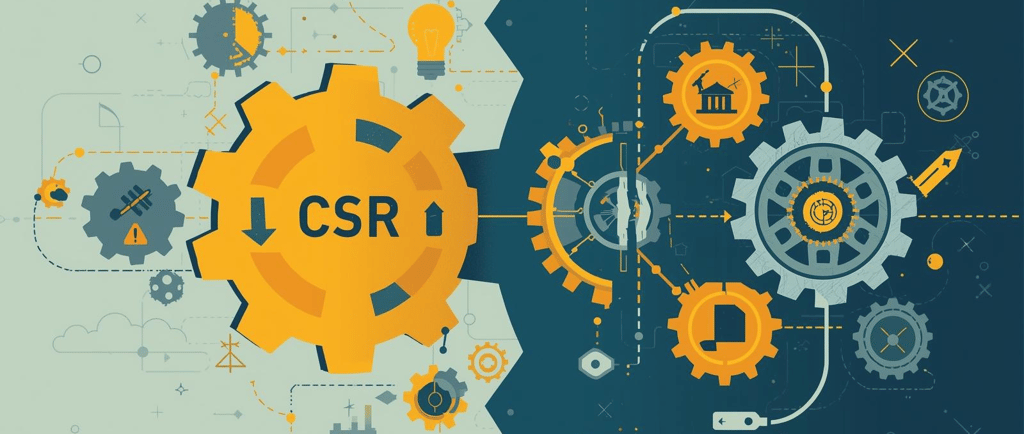How Can Corporate Social Responsibility Lead to Real Systemic Impact?
The private sector is reshaping Africa’s future. This article explores how businesses drive systemic transformation through innovation, finance, and sustainability.
Helio Sixpence
9/23/20252 min read


How Can Corporate Social Responsibility Lead to Real Systemic Impact?
The short answer
Corporate Social Responsibility (CSR) can lead to systemic impact when it goes beyond philanthropy and becomes embedded in business strategy. Instead of one-off donations, CSR aligned with sustainability, inclusive growth, and long-term development goals reshapes markets, supply chains, and communities.
Why CSR needs a systemic shift
CSR has often been seen as charity or image-building. But systemic change requires CSR to integrate into core operations — from sourcing and employment to product design and environmental stewardship.
For example, Unilever’s Sustainable Living Plan linked growth to reducing environmental footprint, influencing suppliers and customers worldwide (Scherer & Palazzo, 2011). Similarly, South African mining firms have reshaped local economies by investing in education and infrastructure, creating lasting community benefits (Hamann, 2019).
How CSR drives systemic impact
CSR initiatives create systemic change when they:
Reshape supply chains through ethical sourcing and labor practices.
Advance social equity by investing in education, health, and women’s empowerment.
Tackle climate change via carbon reduction, renewable energy, and circular economy practices.
Strengthen governance by fostering accountability and transparency across industries.
By influencing norms and standards, CSR can transform entire sectors, not just single firms.
Challenges in making CSR systemic
CSR still faces barriers:
Short-termism: Many firms focus on quarterly results rather than long-term sustainability.
Greenwashing: Some CSR reports highlight small wins while masking systemic harms.
Lack of measurement: Impact is hard to track without standardized frameworks.
Weak partnerships: Limited collaboration with governments and civil society reduces reach.
Overcoming these challenges requires stronger accountability, alignment with the UN Sustainable Development Goals (SDGs), and systems thinking approaches (Visser, 2010).
Conclusion: From CSR to shared value
CSR can move from a marketing exercise to a driver of systemic transformation when companies adopt shared value principles — linking business success with societal progress.
At Elyon Holding, we advocate for Adaptive Stability: businesses maintaining their values while flexibly adapting CSR strategies to shifting needs. This balance ensures CSR investments ripple across entire systems, creating durable impact.
FAQs
Q1: What is systemic CSR?
It is CSR that integrates into business strategy and operations to influence markets, supply chains, and communities at scale.
Q2: How does CSR create systemic change?
By reshaping supply chains, advancing social equity, and addressing global challenges like climate change.
Q3: What are common CSR challenges?
Short-termism, greenwashing, lack of impact measurement, and weak collaboration with other sectors.
Q4: How can CSR align with global goals?
By integrating CSR with the UN Sustainable Development Goals and measuring systemic outcomes.
References
Carroll, A. B. (1999). Corporate social responsibility: Evolution of a definitional construct. Business & Society, 38(3), 268–295.
Hamann, R. (2019). The business of development: Revisiting strategies of social responsibility. Journal of Business Ethics, 157(4), 887–905.
Matten, D., & Moon, J. (2008). “Implicit” and “explicit” CSR: A conceptual framework for a comparative understanding of corporate social responsibility. Academy of Management Review, 33(2), 404–424.
Scherer, A. G., & Palazzo, G. (2011). The new political role of business in a globalized world: A review of a new perspective on CSR and its implications. Journal of Management Studies, 48(4), 899–931.
Visser, W. (2010). The evolution and future of corporate social responsibility. In Responsible Business (pp. 365–380). Wiley.
United Nations Global Compact. (2022). Corporate sustainability in practice: Case studies advancing the SDGs. UN.
World Economic Forum. (2020). Shaping the future of the new economy: Corporate responsibility in action. WEF.
International Finance Corporation. (2019). Creating impact through private sector CSR. IFC.
OECD. (2021). Measuring the impact of business on the SDGs. OECD Publishing.
KPMG. (2022). The time has come: The KPMG Survey of Sustainability Reporting 2022.
